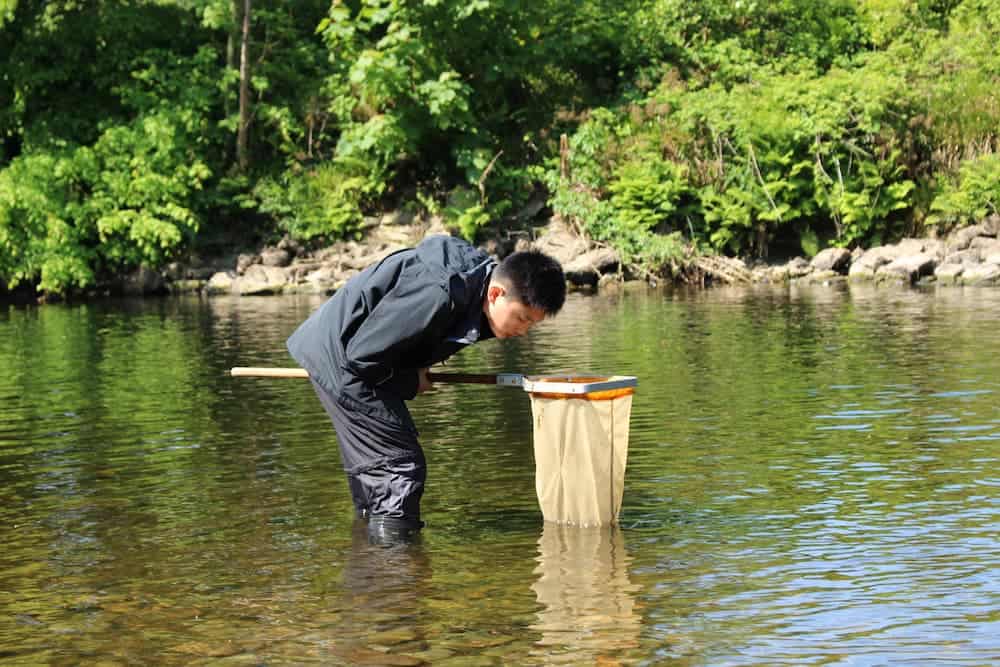The benefits from participating in education outdoors far outreach simply having fun in the fresh air.
With nature as an inspirational backdrop, outdoor experiences provide opportunities for development and growth, including exploration, hands-on learning and risk-taking. When combined within a supportive program designed for discovery and accomplishment, children gain skills and establish strong foundations for strengthening both life skills and subject knowledge.
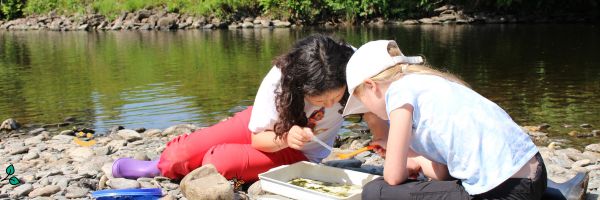
Here are some ways outdoor education can present children with opportunities to develop their skills and abilities in order to achieve their potential.
1. Confidence Building
From spending their first night away from family, scaling climbing walls or simply speaking out loud in front of peer groups – the challenges children may face (and most importantly be supported to overcome) will undoubtedly empower them.
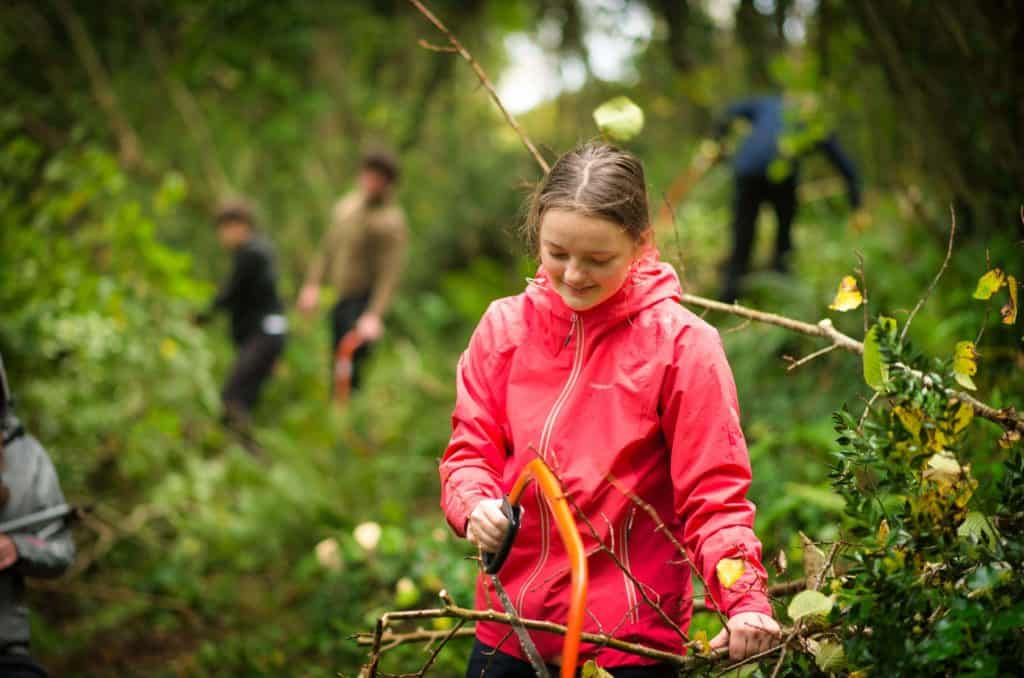
Overcoming challenges increases a child’s self-belief in their own abilities. Whether this is learnt by climbing a mountain or puzzling out an equation – mastering new skills fosters an important self-confidence. Gaining confidence from one experience can transfer this positive attitude to facing challenges in other areas of their life.
2. Building Social Skills
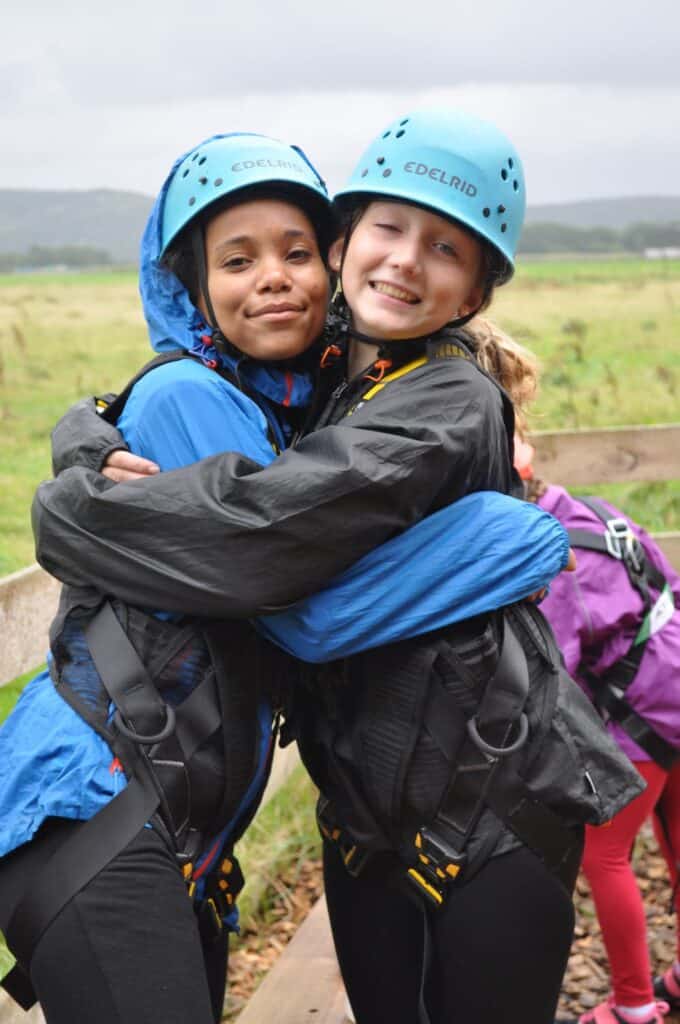
Outdoor education encourages teamwork and cooperation and offers opportunities to engage and collaborate in new groups. Learning to work as a team, negotiate and resolve disagreements is all part of the experience, increasing their social and emotional development and people skills.
Children have the chance to mix with different groups, often forging new friendships, and meeting new members of teaching staff during school trips. Every positive relationship in a child’s life offers the opportunity to learn something about someone, broadening their understanding of diversity, inclusion and widening their community.
3. Supports mental well-being
Studies have shown that spending time in nature has an impact on mental health by reducing stress and anxiety, and improving mood.
Outdoors, children are free to move and bustle about, unrestricted from the confines of their classroom. The freedom of being outside encourages movement and curiosity, helping to create a shared experience among classmates, fostering a sense of belonging and forming a more positive involvement. Activities that increase enjoyment, limit low mood and banish boredom all work as protective factors in maintaining good mental health.
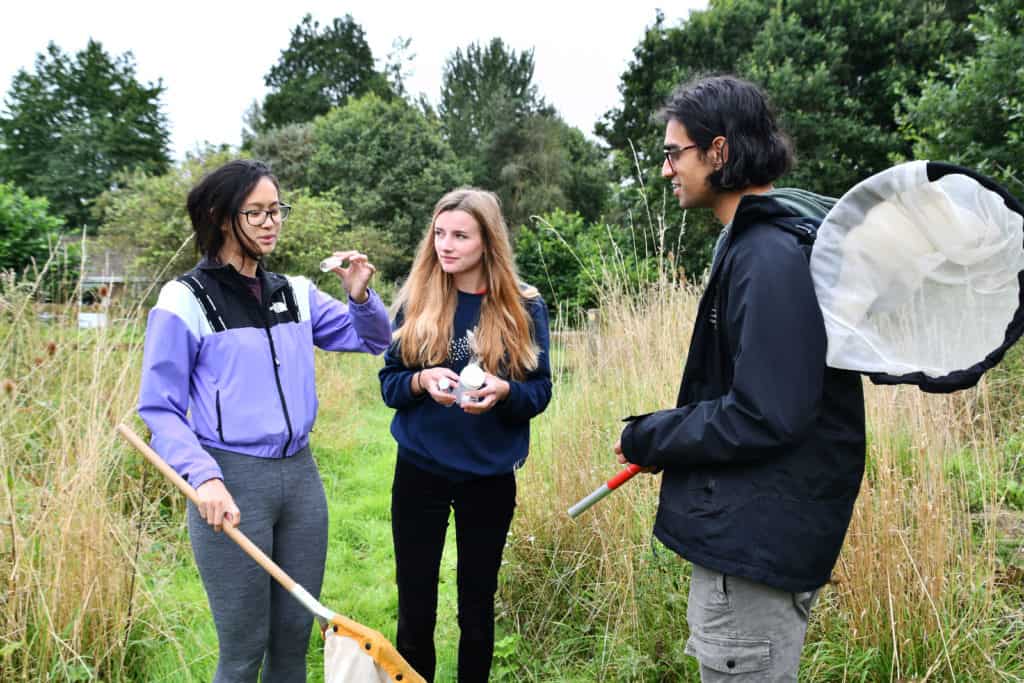
4. Environmental Awareness
By participating in activities outdoors, children learn to develop an appreciation and respect for nature. They begin to understand the connections between the natural world and their own lives.
By developing an empathy for the creatures and environment they have enjoyed interacting with, children will start to feel a connection with the natural world, and as we all want to protect what we care about, experiencing nature as a classroom is a fantastic start to promoting the protection of our planet. While at a Field Studies Council centre, children will learn how we effect our environment, what they can do to reduce their impact, and gain a sense of responsibility in doing their bit to help.
Seeing how we put sustainable habits into practice in our everyday lives, children learn how they can do the same by taking these practices home with them.
5. Evens the playing field
Not every child flourishes in a classroom setting – by changing the learning environment we can often give children their chance to shine! Children with alternative skill sets can achieve success within their peer group where they may have previously struggled.
For example, a child who wasn’t so assured in class is now the child who confidently navigates in the woods or climbs first into the canoe, becoming a leader within the group and helping instil self-belief in others. Outdoor education is a great way to help bring children out of their shell and allows a child, and their classmates, to see them in a different light.
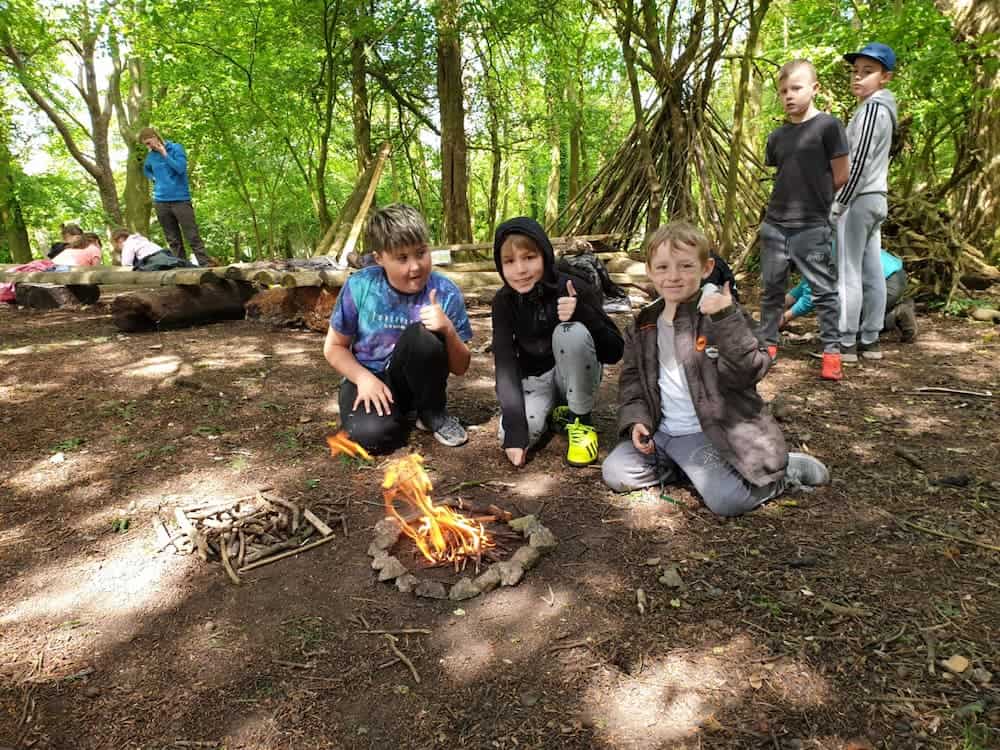
6. Connection with nature
Experiencing the enjoyment of nature first-hand is the only way to create a connection. By introducing children to the outdoors, and opening up the opportunities it offers, we can spark a curiosity or ignite an interest that allows them to return time and time again fostering a lifelong connection.
Leading an outdoorsy lifestyle is far healthier way to spend our time than cooped up inside – having a reason to get outdoors to start with can help encourage this attitude. If a child feels a sense of belonging in the natural world, they are far more likely to return. So if they have tried something outdoors once – walking in the hills, adventure on a river, interacting with wildlife – it is something they now know about, feel comfortable with, and are more receptive to trying again.
This connection can follow them into adult life, meaning they are more likely to grow their connection with nature, leading to a healthier life overall.
7. Risk-taking, Resilience and Adaptability
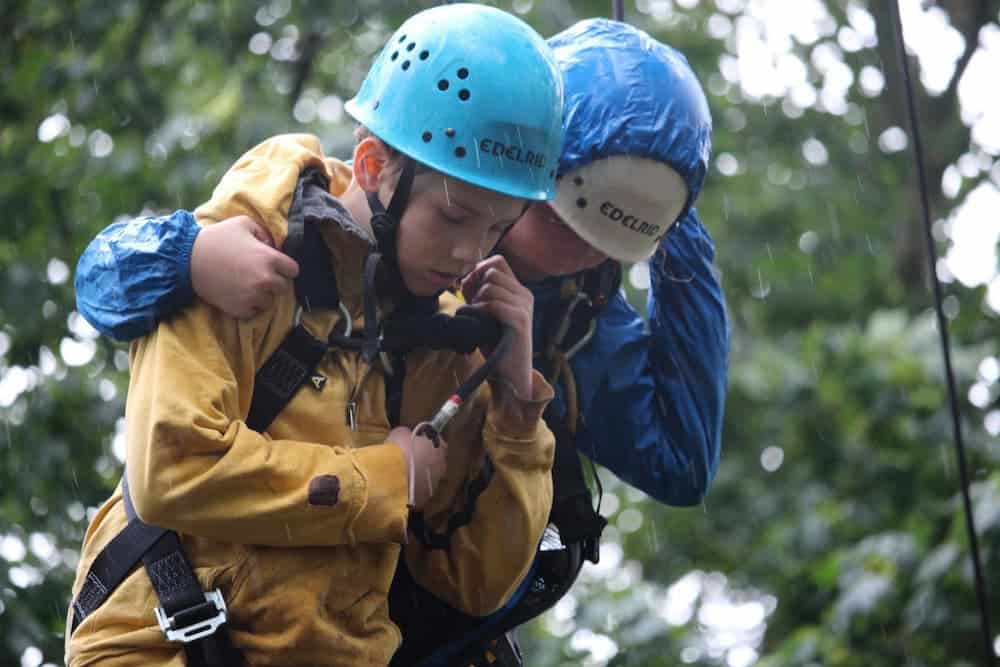
Outdoor education provides children with opportunities to take calculated risks, and therefore a chance to develop resilience, increasing their adaptability to changing environments and situations. Resilience is recognised as playing a crucial role in promoting children’s well being and preventing the onset of mental health issues. Resilient individuals are better equipped to bounce back from setbacks, maintain a positive mental attitude, and thrive in the face of adversity.
Outdoor environments provide opportunities for children to assess and manage risks. They learn to make informed decisions, assess their capabilities, and develop resilience by overcoming challenges and setbacks. By exposing children to these challenges in the outdoors, children learn to develop these life skills allowing them to build confidence, self-esteem, and a sense of independence.
Having these safe opportunities to make mistakes and learn from them, children can understand that failure is a step towards success, and through the process of trial and error, they can develop logic and problem-solving skills. It encourages them to think creatively and find innovative solutions!
8. Learning by doing
Experimental learning – or learning by doing – is a highly effective approach to learning. Engaging multiple senses, hands-on learning promotes active participation and enhances the overall learning experience.
By actively participating in a learning activity, children become more engaged in the process which helps to maintain focus and attention, leading to better retention of information. This practical experience allows a child to understand concepts more deeply and develop a deeper understanding.
Imagine standing knee-deep in a stream investigating rivers, feeling the strength of its flow, and then understanding the effect this would create year after year. The memory will be fixed in their mind. Not only that they braved the wellie wading – maybe something they have never done before – but experienced the power of nature for themselves. This type of investigative learning allows children to apply their academic knowledge to real-life situations, making learning more meaningful and memorable.
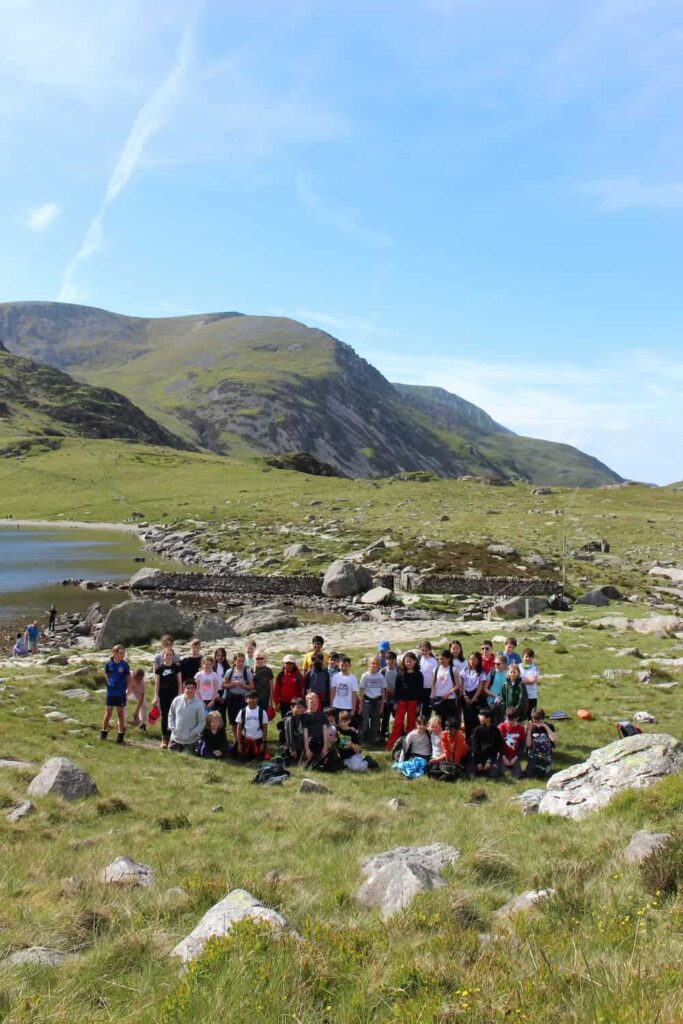
9. Sensory Engagement
Learning by doing often involves multiple senses, such as touch, sight, and hearing, and engaging our different senses helps to reinforce learning and improve memory retention. Outdoor learning presents sensory engagement opportunities time and again. For example, conducting a science experiment involves not just reading about it, but also observing, touching, and hearing the results. Hands-on learning activities allow learners to connect the information to their own experiences, making it more personally relevant. Seeing the practical application of what we are learning makes it more meaningful and easier to remember.
Outdoor education provides an immersive and interactive learning experience promoting active engagement, results in deeper understanding, and better retention of knowledge and skills.
10. Opportunities for new experiences
Learning outdoors provides opportunities for exploration and discovery. We give children opportunities to try something new that they wouldn’t otherwise experience, within a safe, supportive and enjoyable environment. By taking their learning outside the classroom, this opens their eyes to new ways of thinking, new chances of succeeding, new subjects to be inspired by and new pass times to be involved in. The old adage; you don’t know until you’ve tried – is proven again and again. Our school trips are filled with children’s first times, from time away from home, climbing mountains, engaging in science lessons, understanding mathematical concepts, feeling inspired to create a story, and connecting to nature.
We would love to welcome you to one of our centres, whether for the first time, or for a warm welcome back, so we can help your children embrace outdoor learning and all the benefits it brings.

